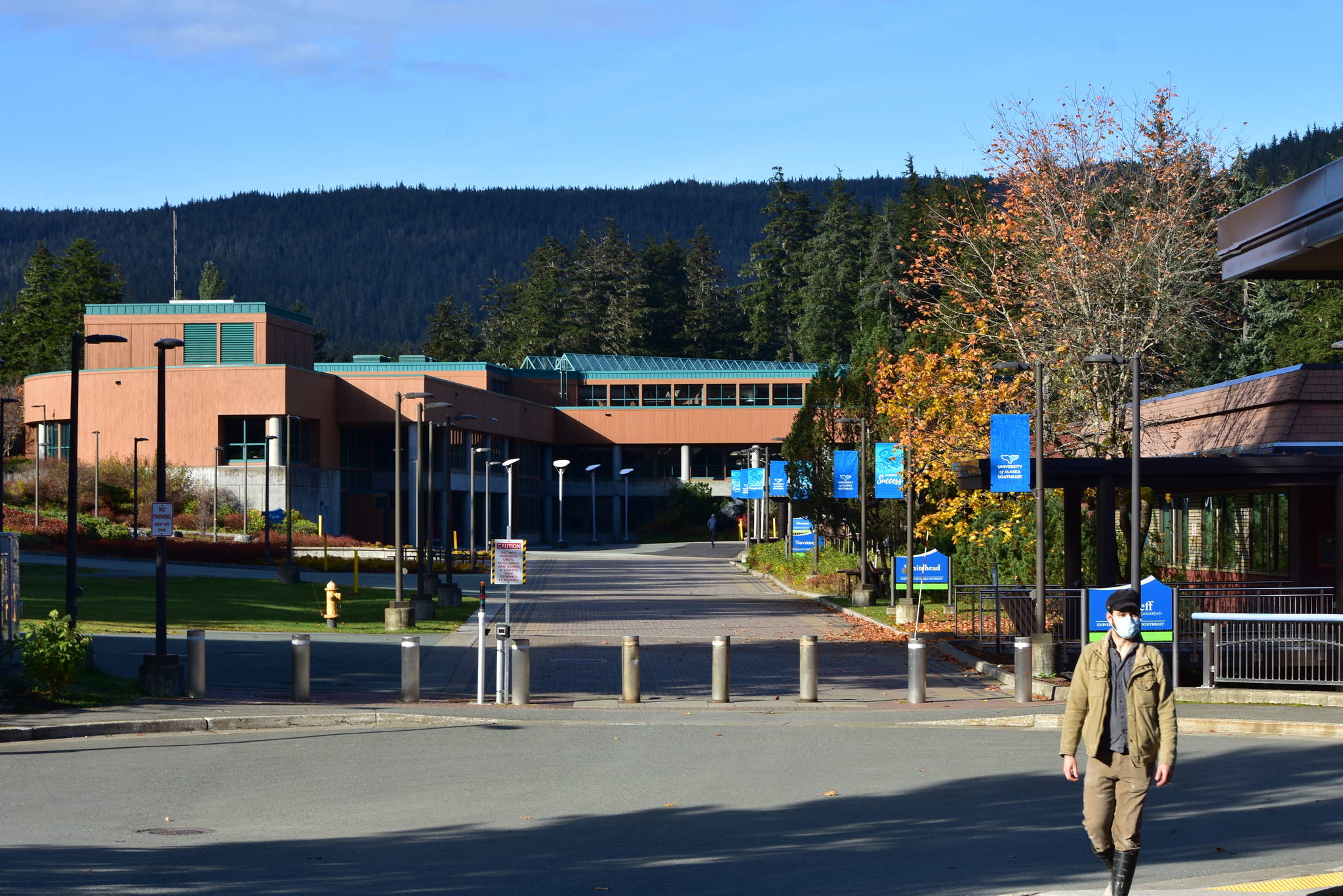The University of Alaska regents held their first meeting of 2021 on Friday for a wide-ranging discussion over the future of the school system.
Despite the pandemic, there was a tone of optimism, with UA Interim President Pat Pitney saying that confidence, trust and stability are at the core of the university moving forward.
Regents met all day to discuss next steps for the university. State budget cuts and the pandemic have caused a lot of uncertainty, Pitney said, but she believes the university has reached a place where things have stabilized and the future is clearer.
Enrollment is down across the university system, but chancellors of the three universities each said that students are enrolling and there are signs of growth. UA Southeast Chancellor Karen Carey told regents enrollment at the school was down 5% from this time last year, but she is confident enrollment will pick up again as pandemic-related restrictions wind down.
“I know we’re down but we’re actually feeling pretty good about it considering these COVID times,” Carey said.
Enrollment is down most at the Juneau campus, she said, largely in arts and sciences. Most of those classes were done in person, and Carey said she believes once the school can offer in-person classes again, enrollment will pick up.
UAS’s other campuses in Ketchikan and Sitka, which were already mostly online, actually saw enrollment grow, Carey said. The Ketchikan and Sitka campus grew by 16% and 13%, respectively, and transfer students from outside the UA system and non-degree-seeking students have both grown in enrollment.
Carey said the school has hired a marketing firm called Hanover Research for a 14-month contract to study UAS’s programs and the labor market and to produce a report with recommendations for recruitment and retention. There is a lot of interest in maritime and fisheries programs, Carey said, and collaboration between the school and UAF has increased.
[New revenue or no service, lawmakers weigh options]
The university owns facilities in Juneau that serve both graduate and undergraduate programs, Pitney said. UAF has facilities in Juneau near Lena Point that works in close collaboration with the National Oceanic and Atmospheric Administration on research, she said, and UAF’s programs are mainly graduate degrees, while UAS’s are undergraduate.
“The facility at UAS and their emphasis on the undergrad program, and how that links to the masters and Ph.D. program, is pretty significant,” Pitney said. “I do believe we have an opportunity to, from a Juneau locations standpoint, create a much more present hub of fisheries and ocean sciences while we maintain the strength of the research capacity.”
The number of fisheries students has grown across both UAF and UAS programs, Pitney said. According to Carey, UAS is working with NOAA, UAF and the Alaska Department of Fish and Game to develop a marine policy program.
Regents also approved a resolution in support of university land grant conveyance. The UA system never received a full allotment of federal lands agreed to by Congress when the university was founded, according to a UA statement — land which could be used to fund the school. Alaska’s congressional delegation, with support from Gov. Mike Dunleavy, submitted legislation in September 2020 that would convey up to 500,000 acres to the state, with 360,000 going to the university, according to UA.
The resolution was largely a formalization of the board’s policy, Pitney said, but it served as a strong statement in support of the idea.
Under the governor’s proposed budget, the university received the full $52 million from the state per the agreement signed with the governor in 2019. But there are a number of backlogged maintenance projects and debts that need attention, according to presentation documents from the meeting, and the pandemic has led to increased costs and less revenue.
The university has requested an additional $50 million to address deferred maintenance, while acknowledging the financial situation in the state. UA also requested at least $5 million to address the most urgent maintenance needs. Some of those maintenance needs might be eligible to receive funding through the general obligation bonds proposed by the governor, Pitney said.
Fundraising on behalf of the University of Alaska Anchorage men’s and women’s Alpine ski team raised two years’ worth of funding for that program, and regents voted to reinstate the program, previously cut under budget reductions.
Regents also voted to extend Pitney’s term as interim president. At multiple points during the meeting, regents praised and thanked Pitney for her leadership and management of the university. Pitney was named interim president after the resignation of President Jim Johnsen.
Contact reporter Peter Segall at psegall@juneauempire.com. Follow him on Twitter at @SegallJnuEmpire.

